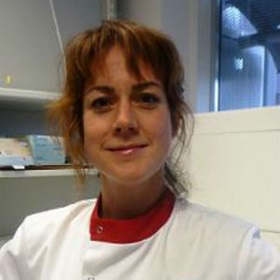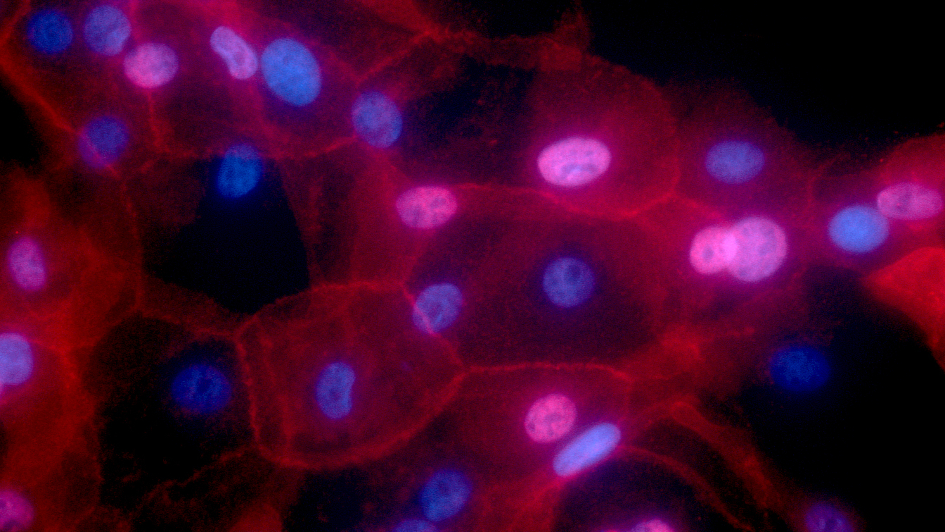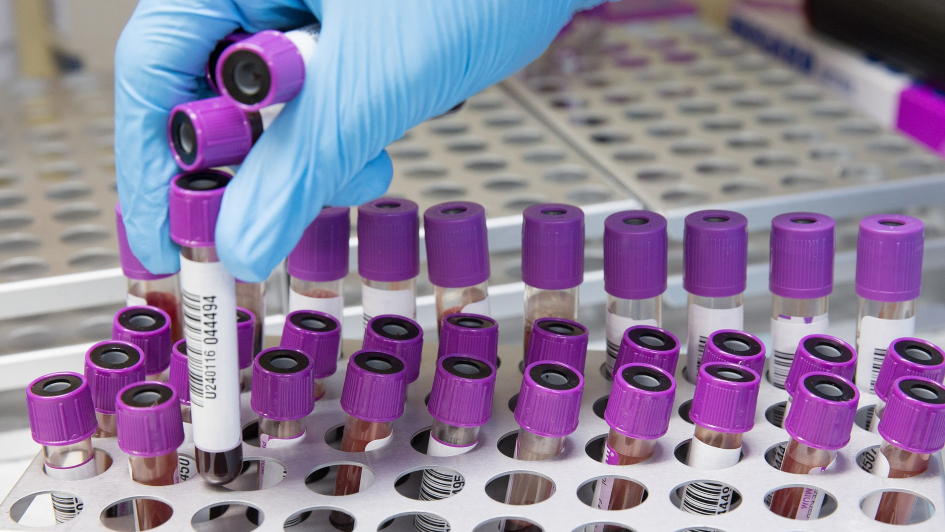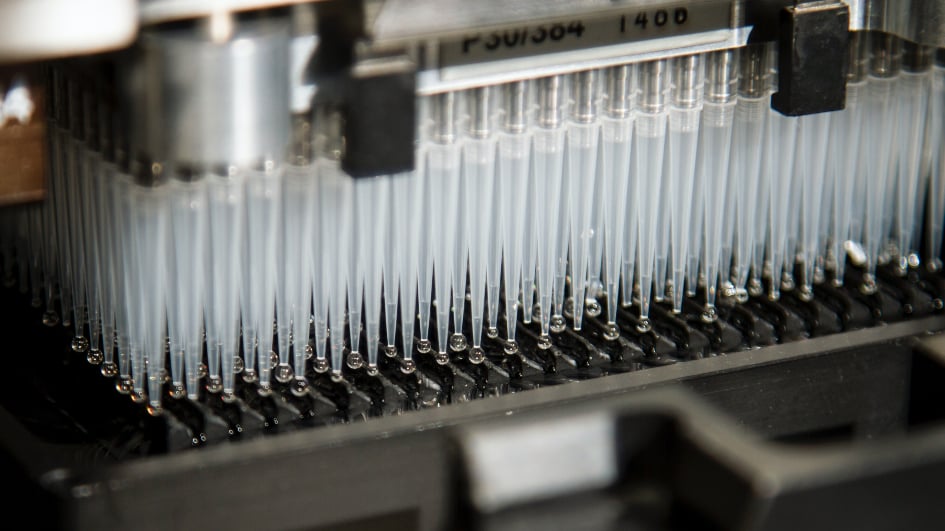Translational Genetics Group
Professor Clare Turnbull's group is investigating ways to optimise ‘next-generation’ sequencing technologies and analyses of these data in order to identify novel cancer predisposition genes.
Professor Clare Turnbull
Group Leader:
Translational Genetics
Clare Turnbull is a Professor of Translational Cancer Genetics at the ICR. Having trained as a Clinical Geneticist, her clinical work as an NHS Consultant focuses on management of patients and families with hereditary forms of cancer at The Royal Marsden NHS Foundation Trust. Clare has trained in epidemiology and public health, is a fellow of the Faculty of Public Health Medicine and FPH lead for genomics; she has an honorary appointment as a Consultant in Public Health Medicine at the National Disease Registration Service.
Researchers in this group
 .
.
Dr Alice Garrett is a Clinical Research Fellow/PhD student and a Clinical Genetics trainee. Her current research focusses on breast cancer predisposition and variant interpretation in cancer susceptibility genes on the CRUK-funded CanGene-CanVar programme. She graduated in medicine from the University of Cambridge in 2012 before gaining Membership of the Royal College of Physicians in 2016 and completing an MSc in Medical Education in 2019.
 .
.
Beth is the Programme Manager for CanGene-CanVar: Data Resources, Clinical and Educational Tools to leverage Cancer Susceptibility Genetics for Early Detection and Prevention of Cancer. Beth has previously worked within NHS R&D and patient advocacy, following completion of her Bachelor’s in Genetics at the University of York and Master’s in Science Communication at the University of Sheffield.
Professor Clare Turnbull's group have written 201 publications
Most recent new publication 6/2025
See all their publicationsResearch and projects in this group
Our group focuses on molecular, statistical and public-health-related population analyses to better implement cancer susceptibility genetics for risk stratification, cancer early diagnosis and prevention.
The research conducted by Professor Clare Turnbull's group focuses on molecular, statistical and public-health-related population analyses to better implement cancer susceptibility genetics for risk stratification, cancer early diagnosis and prevention. This includes:
- Laboratory sequencing and genotyping of germline DNA samples from patients with cancer (especially familial types) to identify and understand new (susceptibility, predisposition) genetic factors associated with cancer.
- Clinical interpretation of genetic variants: to understand which of the millions of variants identified on genomic sequencing are pathogenic (disease-associated) and which are benign (innocuous). Clare leads a multicentre CRUK programme award working with David Adams (Sanger) and Greg Findlay (Crick) to explore the role in variant interpretation of MAVEs (Multiplex Assays of Variant Effect). She has since 2017 led CanVIG-UK (Cancer Variant Interpretation Group UK), a group comprising >300 NHS clinical diagnostic scientists, clinical geneticists and genetic counsellors that meets monthly to advance national consensus on clinical variant interpretation for cancer susceptibility genes and maintains the CanVar-UK web resource.
- Instigating routine central submission of NHS data on germline genetic testing to improve clinical practice and inform research. Via the Turnbull-led CRUK-funded CanGene-CanVar Catalyst Programme (2019-2025), the 17 NHS diagnostic labs in England now routinely submit to NDRS individual-level data from all diagnostic genetic testing of cancer susceptibility genes. These data can be linked to cancer registrations and multiple other datasets to understand the national patterns of and outcomes from germline genetic testing for cancer genes.
- Public-health related analyses of the efficacy of genomic approaches to improve cancer early detection (screening) and prevention, including MCED population screening and risk stratification by polygenic risk scores.
- Transforming NHS clinical patient pathways to enable expansion of germline genetic testing: In 2019 we developed the BRCA-DIRECT pathway (digital pre-test information, saliva sampling, genetic counselling telephone helpline, automated laboratory workflows and systematised clinical communication/correspondences), a clinician-lite, patient-centred pathway for mainstream oncology testing for BRCA=gene changes, hypothesising this would enable expansion of testing volumes without incurring increased pressure on the genetics or oncological workforces.
Following our CRUK-funded randomised trial in 1400 breast cancer patients in 5 NHS hospital sites, the pathway has been rolled out as a standard-of-care mainstreaming transformation project in North Thames GMSA (2023-2025, for up to 6000 newly diagnosed breast cancer patients). We have adapted this pathway to enable delivery of The NHS Jewish BRCA Testing Programme (2023-2026) in conjunction with Professor Mike Hubank’s group the RMH Centre for Molecular Pathology.
- Studies of Testicular Germ Cell Tumour Susceptibility
- UK Genetics of Testicular Cancer Study
- Genetics of Multiple Cancers Study
Studies of Testicular Germ Cell Tumour Susceptibility
Testicular germ cell tumour (TGCT) is the most common cancer in men aged 15–45 years and affects nearly 2,000 men in the UK per year. Family history is an important risk factor for the disease. If a man has a brother who has suffered testicular cancer, his risk of developing the disease is 8–10 fold increased compared to a man without any family history of disease. This risk is much higher than the equivalent risks for most other cancer types (typically 2–3 fold elevated). These observations indicate that genes are important in causing testicular cancer.
We have previously identified six genomic regions and more recently an additional nine genomic regions associated with testicular cancer. These, in conjunction with regions identified in international collaborative experiments to which we have contributed, bring the total number of regions identified to eighteen. We aim to identify further regions of the genome associated with testicular cancer and additionally to use new technologies to sequence many thousands of genes in order to identify the genes involved in causing testicular cancer.
UK Genetics of Testicular Cancer Study
MREC: 06/MRE06/41
We are now recruiting all cases of testicular cancer through the UK Genetics of Testicular Cancer Study.
This includes cases of testicular cancer with a family history of the disease and those without a history.
We have recruited 3,000 men to this study and aim to increase this number to 10,000. The blood samples and information from men involved, are used in studies to identify testicular cancer predisposition genes.
Any man who has had testicular cancer and has completed his treatment can participate in this study. Participation in the study simply requires the man to:
1. Provide a blood sample.
2. Complete a short questionnaire about himself and his family.
If you would like more information about the study, download the Patient Information Sheet. If you are interested in participating, contact the study coordinator, Darshna Dudakia, who can provide additional information. Alternatively, phone the research group on 0208 722 4283.
Study Coordinator email: [email protected]
References
Rapley, E.A. et al. A genome-wide association study of testicular germ cell tumor. Nat. Genet. 41, 807-810 (2009)
Turnbull, C. et al. Variants near DMRT1, TERT and ATF7IP are associated with testicular germ cell cancer. Nat. Genet. 42, 604-607 (2010)
Ruark, E. et al. Identification of nine new susceptibility loci for testicular cancer, including variants near DAZL and PRDM14. Nat. Genet. (2013)
Schumacher, F. et al. Testicular germ cell tumor susceptibility associated with the UCK2 locus on chromosome 1q23. Hum Mol Genet (2013)
Chung, C. et al. Meta-analysis identifies four new loci associated with testicular germ cell tumor. Nat. Genet. (2013)
Genetics of Multiple Cancers Study
The aim of the Genetics of Multiple Cancers Study (GeMCaS) is to collect biological samples and clinical data from individuals who have had two or more primary cancers. This will help us to identify, and better understand, the genetic factors that predispose to the development of multiple tumours. In turn, this will facilitate diagnosis and risk evaluation and will enable the development of guidelines for management of individuals and families at increased risk of developing cancer.
Study coordinator email: [email protected]
Current vacancies in this group
There are currently no vacancies available in this group or area.
Recent discoveries from this group
).jpg?sfvrsn=83bdab30_1)
Genetic study links common form of testicular cancer to rare variants in cell structure genes

Breast cancer risk model provides reassuring data for those with family history of disease after short-term HRT use

Genetic testing for Lynch Syndrome prevents cancers being missed
